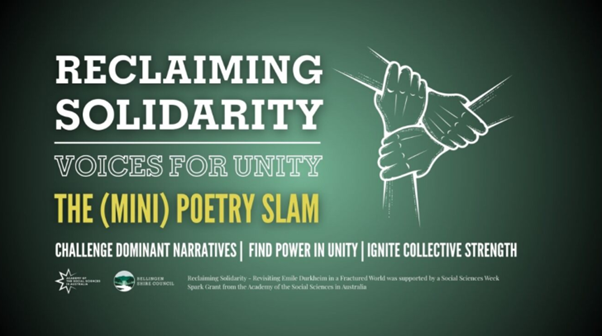Reclaiming Solidarity: Voices for Unity Poetry Slam
This event invites people to come together and reflect on what solidarity means in our world today. Drawing on ideas from Emile Durkheim, the event explores how connection, cooperation, and shared purpose can help us respond to the challenges of an increasingly complex world. Solidarity is about recognising that we are stronger when we stand together. It’s about building common ground across differences, supporting each other in times of need, and finding shared values that unite us, whether in our local communities or on a global scale.



